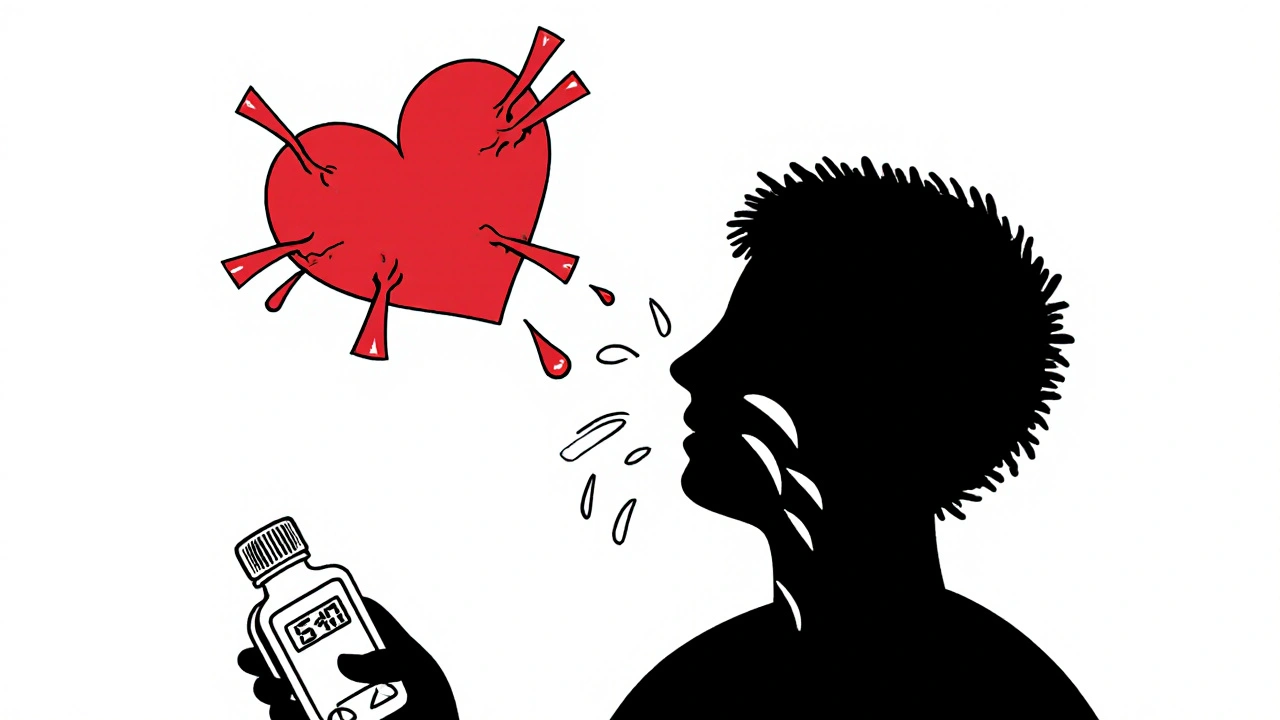Insulin and Beta-Blockers: How They Interact and What You Need to Know
When you're taking insulin, a hormone used to lower blood sugar in people with diabetes, and also using beta-blockers, a class of drugs often prescribed for high blood pressure, heart conditions, or anxiety, things can get tricky. These two don’t just coexist—they interfere with each other in ways that can put your health at risk. Many people don’t realize that beta-blockers can hide the warning signs of low blood sugar, like shaking, fast heartbeat, or sweating. That’s dangerous because if you don’t feel those signals, you could slip into a severe hypoglycemic episode without knowing it.
Insulin works by pulling glucose out of your blood and into your cells. Beta-blockers, on the other hand, block adrenaline. That’s good for your heart, but bad for your blood sugar awareness. Adrenaline is one of your body’s main alarms when blood sugar drops. When beta-blockers silence that alarm, your body can’t tell you it’s in trouble. This isn’t theoretical—studies show people on beta-blockers with diabetes are more likely to have unexplained low blood sugar events. And if you’re also taking other meds like diuretics or ACE inhibitors, the risk multiplies. You can’t stop your beta-blocker just because it’s making blood sugar harder to track. But you can learn to watch for subtler signs: confusion, dizziness, blurred vision, or sudden fatigue. These are your new warning flags.
It’s not all bad news. Many people manage both insulin and beta-blockers just fine. The key is monitoring more closely, checking your blood sugar more often—especially before meals, before bed, and after exercise. Talk to your doctor about adjusting your insulin timing or dosage if you’re noticing more lows. Some beta-blockers, like carvedilol, are less likely to mask hypoglycemia than others, like propranolol. Your pharmacist can help you figure out which one you’re on and what that means. And if you’ve ever passed out from low blood sugar without warning, that’s a red flag your team needs to hear.
What you’ll find in the posts below isn’t just a list of drugs. It’s real-world advice from people who’ve been there: how to spot hidden risks, what questions to ask your doctor, and how to balance heart health with blood sugar control. You’ll see comparisons of common beta-blockers, tips for avoiding dangerous interactions, and stories from others managing both diabetes and heart conditions. No fluff. Just what works.
Insulin and Beta-Blockers: What You Need to Know About Hypoglycemia Unawareness and Risk
Combining insulin with beta-blockers can mask hypoglycemia symptoms, leading to dangerous unawareness. Learn how to recognize the signs, choose safer medications, and protect yourself from life-threatening lows.
read more

